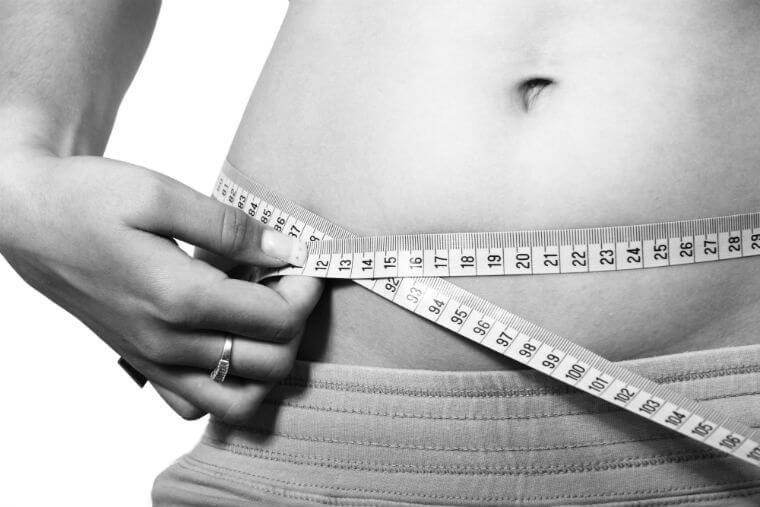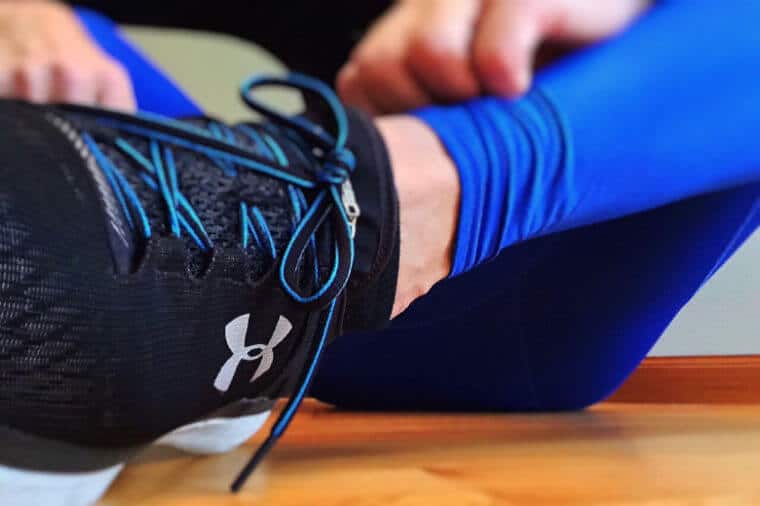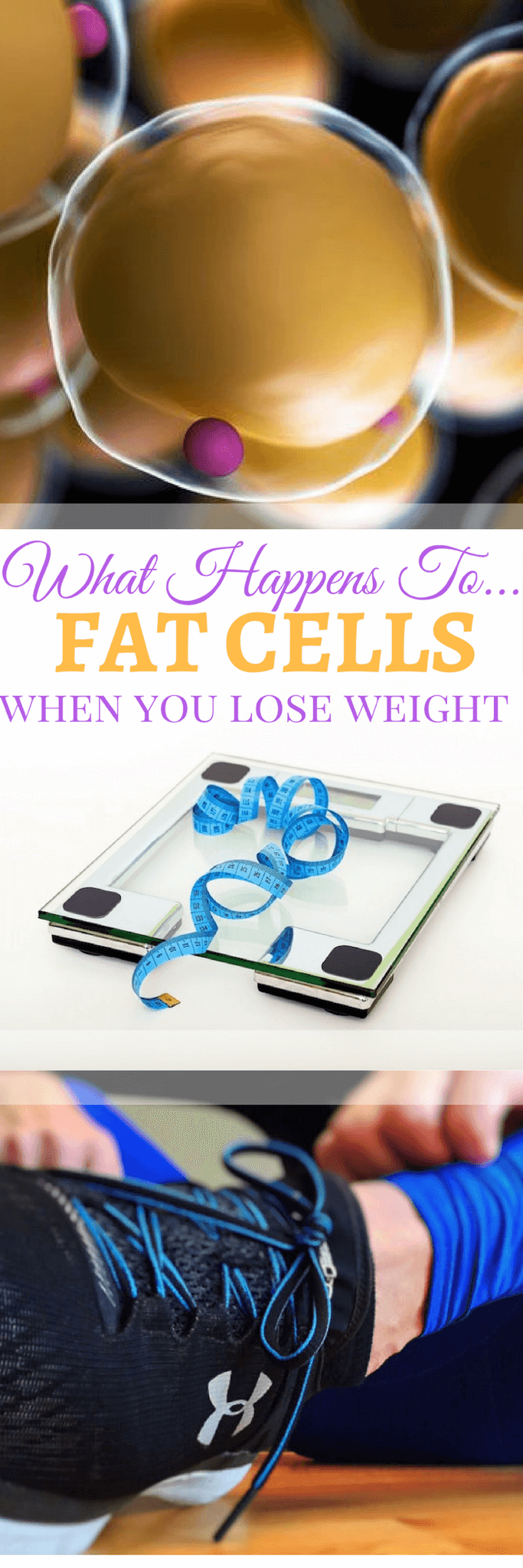I share the research on what happens to fat cells when we lose weight and gain weight.
We live in a fat-fearing society where people will do anything to eliminate it. Everywhere we look, we see products aimed at “burning fat”, “shedding the fat” or “getting rid of the bulge”. We even see ads for “freezing the fat away.” What does that even mean, though?

I’m here to assure you that we don’t want to eliminate fat, but we should understand its mechanisms better so we can reach realistic goals and learn to love our bodies. We’ll shed some light on what happens to fat when we consume it, store it, gain it, lose it, where it goes when we burn it and the truth behind claims made by the cosmetic industry that fat can be frozen off.
If we look to the research and understand the inner workings of a fat cell, we can get to know them better and find strategic and safe ways to reach our own desired health goals (including just loving the shit out of fat). Before we get into the good stuff, as always, I’m going to make you sit through the quickest biology class of your life (I promise).
A Fat Cell’s Origin Story
Our bodies carry two types of fat tissue: white fat and brown fat. White fat is the main fat in adults while brown fat is mainly found in newborns babies. In this article, we’ll focus on white fat since it plays the largest role in adult metabolism. However, in a bit we’ll discuss the exciting research emerging around brown fat. Our fat tissue is made up of a bunch of fat cells, also called adipocytes. Picture adipocytes as little plastic bags that each hold a drop of fat.
Let’s say you eat a food that contains fat, like a delicious slice of pizza. Your body will break down the fat components of the pizza and you’ll end up with something called a triglyceride in your blood. Triglycerides are then further broken down into a glycerol molecule and fatty acids which are absorbed into adipocytes and become those little bags of fat droplets.
What Happens to Fat Cells When We Lose Weight?
The big research question around fat cells was, do fat cells increase in number if we eat more fat? For a pretty good stretch of time, we thought we knew the answer to that. Back in 2008, a team of Swedish researchers determined that the number of fat cells we have are set in our childhood and adolescence. After that, the number of fat cells we have remains the same throughout adulthood. They found that this was still the case in both lean and obese individuals. They studied individuals who had gained weight over time (close to 15-25% weight gain), and found that there was an increase in the size of the fat cell, but the fat cell number remained unchanged.
Another thing these researchers studied is the life and death of a fat cell –also known as its turnover rate. All things must come to an end, and they wanted to figure out when that end was. They found that the generation and clearance of a fat cell were tightly controlled and regulated in order to keep a fine balance. This further emphasizes that the number of fat cells in our body remains unchanged –any fat cell that dies is quickly compensated by the production of a new fat cell. Sounds like even stevens, to me.
Before we cozy up to this theory, we have to remember that science changes and new theories emerge.
A couple years later, a different team of researchers challenged that theory by determining that we can gain fat cells in different regions of our body. The original Swedish study only measured fat cells in the abdominal region of our body. However, this new study looked at both the upper and lower parts of our body that house fat cells to find any differences. Basically, they overfed a bunch of volunteers, they gained weight, and then assessed whether there was a change in fat cell numbers. Just like in the Swedish study, there was no change in the number of fat cells in the abdomen area, only an increase in the size of fat cells. However, the increase in body fat resulted in a significant increase in the number of fat cells in their lower body. With a weight increase of 1.6kg in lower body fat, 2.6 billion new fat cells were created within only 8 weeks. The study found that when fat cells reach a critical volume, when they cannot accumulate any more fat, new fat cells are born.
Another key lesson from this study was that lower body fat seems to have more of a protective effect compared to upper body fat. Upper body fat is associated with some dangerous risk factors like developing type II diabetes, heart d, sease and other serious chronic diseases because of its presence/pressure on vital organs. It also seems that if we are to gain fat cells, the best place to house them are in our lower body in order to mitigate the adverse effects associated with excessive abdominal weight. This theory is still fairly new, and we also don’t have the power to tell our fat where to go, but it may be an interesting starting point for future research.
The next question is, if we can gain fat cells, can we lose them?
Fat Cells & Weight Loss
You guys aren’t going to like the answer for this one. Studies have shown that weight loss leads to a dramatic reduction in the size of fat cells, but not the number. Sadly, fat cells do not disappear into thin air. They stay put but their size is directly influenced by either weight gain or weight loss.
The bad news doesn’t stop there.
Losing weight is an uphill battle because your body is fighting you the whole way there. One hypothesis is that weight loss causes cellular stress in your fat cells and the only way to relieve the stress is by regaining the weight to normalize the shape of your fat cells.
When we change the cellular structure of a fat cell, our body gets a little out of whack and there exists this biological drive to create balance. As I’ve mentioned before, our body likes to create order. There is a higher power that regulates our body weight and that higher power is our brain. Our brain receives signals from the rest of our body regarding energy stores and the necessary nutrients we need. Our body then adjusts our energy balance to meet all needs.
One way many people try to lose weight is to restrict calories, but this can quickly backfire and often have the opposite effect. When you restrict calories, your body quickly sends signals to increase appetite in order to make up for lost energy. Your body basically wants you to fail and relapse so you regain the weight to restore order. Another thing that will happen is your metabolism will inevitably slow down because your body is trying to conserve as much energy as possible. It’s like putting half the amount of oil that you usually put in your car to run.
Another thing happens when our fat cells shrink in size: our metabolic profile changes.
Let’s not forget about the hormones. Research has shown that the levels of leptin and insulin in our body may be related to the amount of fat mass we have. Studies have found that insulin sensitivity may be related to the size of your fat cells. One study found that individuals who underwent bariatric surgery decreased their body weight by 33%, decreased their fat cell size (not fat cell number) and the loss of fat was correlated with improved insulin sensitivity. They found that smaller fat cells were able to use insulin more effectively by taking up more glucose. That is why weight loss is usually recommended in some individuals with diabetes to improve blood sugar levels. They also found that smaller fat cells secrete less leptin which is a hormone that tells us to stop eating. We want more leptin, because it can control our intake and tells us when we’re satiated, so here’s another way that our body is rooting against us and trying to get us to regain weight.
Contribution by Sofia Tsalamlal, RD
Updated on January 19th, 2022

Abbey Sharp is a Registered Dietitian (RD), regulated by the Ontario College of Dietitians. She is a mom, YouTuber, Blogger, award winning cookbook author, media coach specializing in food and nutrition influencers, and a frequent contributor to national publications like Healthline and on national broadcast TV shows.









Betsy Ramirez says
Love this article, Abbey! It’s a great breakdown so people can see weight loss is a lot more complicated than just a diet.
Abbey Sharp says
thanks Betsy!
Shannon @ KISS in the Kitchen says
I’m often talking about this very topic with my clients; so helpful to have this link to direct them to! Thanks, Abbey!
Abbey Sharp says
Thanks Shannon!
Abbey Sharp says
Thanks for reading!
Ilka says
So much great info here. Most weight loss posts usually do not cover this much detail about how our fat cells really work.
Abbey Sharp says
thanks so much!
Adrien Paczosa says
Great article and very informative. Looking forward to part 2!!!
Abbey Sharp says
thank you!
Alysa Bajenaru, RD says
So interesting! You do a great job of breaking down science for us, Abbey.
Abbey Sharp says
Thanks so much Alysa!
Lindsey Pine says
Great article! Can’t wait to read part 2!
Abbey Sharp says
yay 🙂
Katie Cavuto says
Wonderful article, Abbey! So much information in an easy-to-read format. Perfect!
Abbey Sharp says
That’s awesome to hear 🙂
Carmy @ carmyy.com says
This was so informative, I need a minute to let it sink it. My very basic knowledge was that you can create new fat cells but they’ll never go away – they’ll only shrink. Which you know, totally sucks but this gives me a better understanding of it!
Abbey Sharp says
Thanks for reading and absorbing! It’s a lot to uncover but luckily we do the research for you 🙂
jill conyers says
More great info Abbey. I didn’t know about the difference between fat cell size and number. It’s really quite fascinating.
Abbey Sharp says
It is isn’t it! So much to get through thanks for reading 🙂
Stacey Mattinson says
Great overview! So disappointing fat cells never *leave* but it’s a strong motivator to always keep weight in check! The good news is weight loss (if needed) is still beneficial regardless. Thanks for sharing!
Abbey Sharp says
Thank you for reading and absorbing the info. I know it’s quite a lot.
Jodi @ Create Kids Club says
You do a fantastic job covering a TON of information, smooshing it down to make it short and sweet so the average reader can understand – and not get bored. I may have daydreamed a time or two during all those science classes back in college 😉 Can’t wait for part 2!
Abbey Sharp says
Thank you so much!
GiGi Eats says
You’re such a wonderful educator! Seriously. So many people don’t know ANYTHING about this! We cannot lose fat cells, they just get smaller – but no one seems to know this but at all! With your help though… A few more people will know!
Abbey Sharp says
Thanks Gigi! Glad you see it that way!
Abbey Sharp says
Thank you SO much!